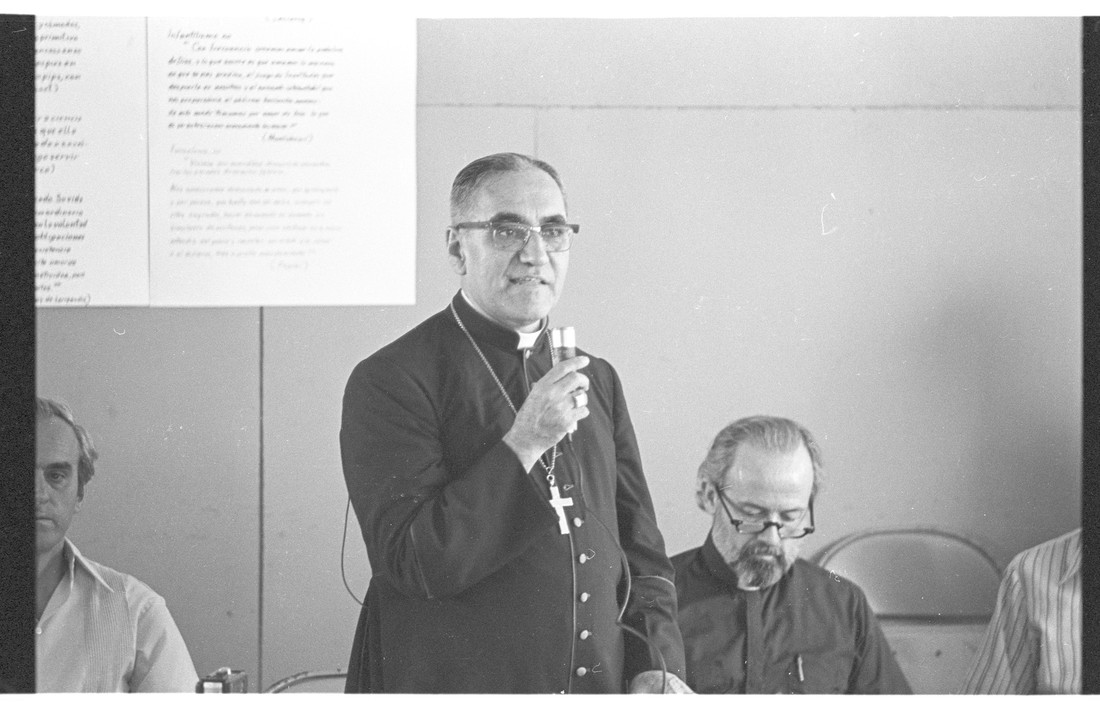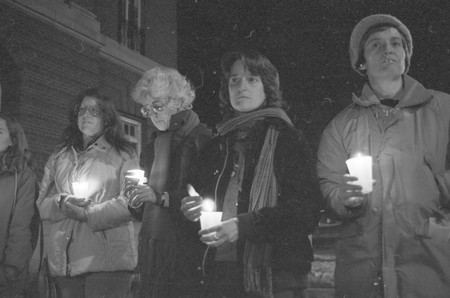
On Sunday, Oct. 14, Salvadorans celebrated the canonization of Archbishop Oscar Arnulfo Romero, well-known for denouncing the violation of human rights of Salvadorans through repressive actions taken during El Salvador’s civil war.
In February 1980, Archbishop Oscar Romero of San Salvador sent a personal letter to then U.S. president Jimmy Carter, protesting U.S. military aid to his embattled country. Since the official response to the archbishop’s letter was less than adequate, a representative group of concerned church agencies determined they would send an ecumenical team to El Salvador.
AFSC and other religious organizations organized a visit to El Salvador that took place in March 1980. Its purpose was to express our support and solidarity for Archbishop Romero and all the suffering people of El Salvador; to conduct a brief but intensive investigation of the Salvadoran situation; and to communicate our findings and recommendations to the U.S. government, concerning the implications of its policies.
This visit included meetings with representatives of churches in El Salvador, organizations of human rights defenders, representatives and participants of the Movement for National Unity, the presidency of the Republic and Archbishop Romero, with whom they met one day before his assassination. Our representatives and the rest of the members of the ecumenical team were deeply touched by his humane vision and his real concern for the suffering of his people. In one of his homilies, Archbishop Romero stated: "I beg you, I plea you, I command you in the name of God: Stop the repression!"

Today, we join the celebration acknowledging the constant and tireless work of Saint Oscar Romero as a human rights defender and peacebuilder. We also reaffirm our commitment to continue our work to build lasting peace in Latin America and the Caribbean, by following his example.
The enemies of Monsignor thought they would silence his voice with a bullet, but we trust that the communities to whom he gave a voice will continue denouncing the sin, the injustice, and the repression, announcing peace and hope.
More resources: